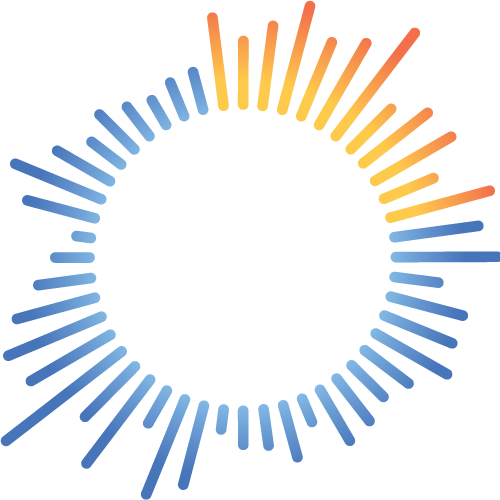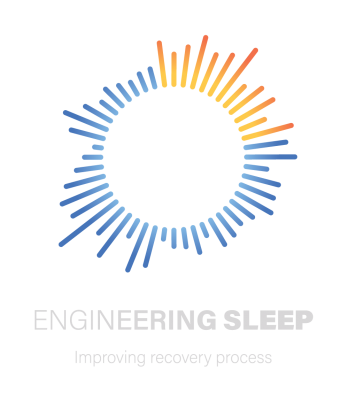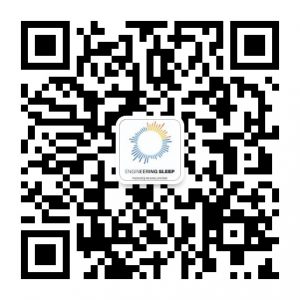What is Sleep Apnea?
Sleep Apnea is when you stop breathing during sleep and your brain wakes you up to protect yourself. Sometimes, these temporary breathing lapses can happen hundreds of times throughout the night and you don't know about it.
The airflow can be blocked by the relaxation of the soft tissue in the back of the throat (Obstructive Sleep Apnea) or by irregularities in the brain signals to breathe (Central Sleep Apnea).

Think about underwater, how hard it is to stop breathing; so now, imagine hundreds of times when you are asleep. After 10 seconds, your brain will sense the lack of oxygen and the increase of CO2 in your blood. You will have to be briefly roused from your sleep in order to restart breathing. It will make you choke or move, so you will make a loud noise, and often scare your partner. This awakening is so fast that you don’t realize it, and you go back to sleep a few seconds before the next apnea… This cycle will repeat all night.
You have no idea about this and you might think that your sleep problem is caused by objective reasons such as stress, noise, temperature, uncomfortable bed, partner moving too much, etc.
Some of you think they are sleeping well!
In fact, it might be the worst sleep possible:
- The oxygen level in your blood changes constantly which may lead to very serious cardiac diseases2 (high blood pressure, heart failure, irregular heartbeat, stroke, and various heart disease…).
- Hundreds of small awakening interrupt your sleep cycles, which give you excessive daytime sleepiness, creating troubles in focusing on daytime activities.
- You rarely reach the deep sleep stage, which may impair your immune system and accelerate your aging process.
- Your dreams are often turned into stressful or incomplete which may decrease your cognitive ability.
Sleep Apnea has been associated as a systemic risk factor with several diseases such as diabetes, glaucoma, and cancers3-4-5, decreases libido, promotes erectile dysfunction and studies show a high risk of death6.
It affects your entourage
Because people with long-lasting Sleep Apnea will develop a coping strategy, the impact on your family or colleagues is often diminished. You think it’s your own problem, but not only!
For instance, it impacts very much your bed partner, who will become sleep deprived as well because your noises wake them up. The big difference is that the partners know why they cannot sleep. Sleep Apnea is one of the leading causes of divorce7.

Daytime sleepiness is the number one cause of workplace accidents such as jobs requiring high attention and focus (driving, security, shifts, decisions taker…)
On top of all the biological problems, we can see mood and cognitive issues as well as social interaction impairment. It drastically affects your mind, daytime sleepiness can make you grumpy and hasty, you lose the ability to see fast enough the changing around you. It’s like a negative spiral that can lead to depression8.
We know that you want to save yourself from the caprice disorder of sleep. But at first place, we have to test your body function when you are asleep to find the appropriate solution.
Now, there are two possibilities. First, you can choose to go to the nearest hospital testing everything about your sleep. The advantage of a complete polysomnography is that they can check tons of parameters besides the classic sleep Apnea testing and you have medical staff around at night if needed. But there is a lot of inconveniences that some people can’t stand, such as trying to have an appointment in a highly administrative environment, very time-consuming, lack of cleanness, surrounding by people, the feeling of being sick and some can’t stand the smell. This procedure is very expensive too. A lot of cables and strings are attached to you while you are asleep. Hospital induces a lot of anxiety, and we want to record your sleep as close as possible to your everyday sleep pattern.
That’s why we think that the second possibility of being tested at home is better.

You don t need to sleep at the hospital
At Engineering Sleep, we use the last technology from Philips Respironics, the Alice NightOne for Home Sleep Apnea Test9. It is a medical device with sensors that is used to diagnosed Sleep Apnea. Click here for more info.
The specificity of this new portable device is to be light, very accurate. It also never interrupts your normal sleep.
You don’t need to spend a night in a stressful environment like the hospital, we adapt to your needs and habits. We will set up the device, you just have to bring the machine to your home and turn it on to record your unique way of sleeping in your own bed with your favorite pillow.

Doing a recording session will help us to understand your distinctive problem in detail and propose you the best treatment possible.
We will analyze scientifically, following the American Academy of Sleep Medicine V2.6 recommendations10, the result of 7 channels of data:
- Body position
- Pressure flow
- Snore
- Respiratory effort
- SpO2
- Pleth
- Pulse rate

With those data, Dr. Rochon, our sleep specialist, bio psychologist founder of Engineering Sleep, with Li Lin, our master in sleep medicine, registered sleep data analyst will design a special treatment for you, among the multiple ways to manage this disorder. We have been working in the sleep care and research fields for more than 10 years in China and Europe. From this experience, we listen very carefully to your problems and find the best solution to your situation.
We propose a fast, easy, more careful, and highly scientific way to test your Sleep Apnea.
We, at Engineering Sleep, hope that you can have the best sleep that you deserve, a strong focus at work, and vitality to enjoy the time with your close ones.
References:
1. Global Prevalence of Obstructive Sleep Apnea in Adults: Estimation Using Currently Available Data. American Thoracic Society 2018 https://www.atsjournals.org/doi/abs/10.1164/ajrccmconference.2018.197.1_MeetingAbstracts.A3962
2. Obstructive sleep apnea and cardiovascular disease: role of the metabolic syndrome and its components. JClinSleepMed. 2008 Jun 15;4(3): 261-272 https://www.ncbi.nlm.nih.gov/pmc/articles/PMC2546461/
3. Sleep apnea and diabetes: insight into emerging evidence. Curr diab rep. 2011 Feb; 11(1):35-40. https://www.ncbi.nlm.nih.gov/pmc/articles/PMC4224959/
4. Glaucoma and its association with obstructive sleep apnea: a narrative review. Oman J Ophthalmol. 2016 Sep-Dec; 9(3): 125–134. https://www.ncbi.nlm.nih.gov/pmc/articles/PMC5084493/
5. Sleep apnea and subsequent cancer incidence. Cancer Causes Control. 2018 Oct; 29(10): 987–994. https://www.ncbi.nlm.nih.gov/pmc/articles/PMC6162141/
6. Sleep Disordered Breathing and Mortality: Eighteen-Year Follow-up of the Wisconsin Sleep Cohort Sleep. 2008 Aug 1; 31(8): 1071–1078. https://www.ncbi.nlm.nih.gov/pmc/articles/PMC2542952/
7. Association of anxiety and depression in obstructive sleep apnea patients: a systematic review and meta-analysis. Behav Sleep Med. 2018;19:1–23.
8. https://sleepguardian.com.au/blogs/news/snoring-is-a-leading-cause-of-divorce
9. https://www.usa.philips.com/healthcare/product/HC1114801/alice-nightone-home-sleep-testing-device/overview
10. https://aasm.org/clinical-resources/scoring-manual/
More Posts

Welcome to Engineering Sleep blog.
Hello and welcome. I wanted to start the story of this blog with a personal one. When I was 18 years old, living in France,

About Chronotypes
While it’s not news to the scientific community that many animals – including human beings – have an internal, genetic circadian rhythm, mainstream society has

Performance and chronotype
How can you structure your day according to your chronotype to improve your performance? The first step is to make sure you know which

1 billion people are suffering from the most dangerous sleep disorder: Sleep Apnea.
What is Sleep Apnea? Sleep Apnea is when you stop breathing during sleep and your brain wakes you up to protect yourself. Sometimes, these temporary





